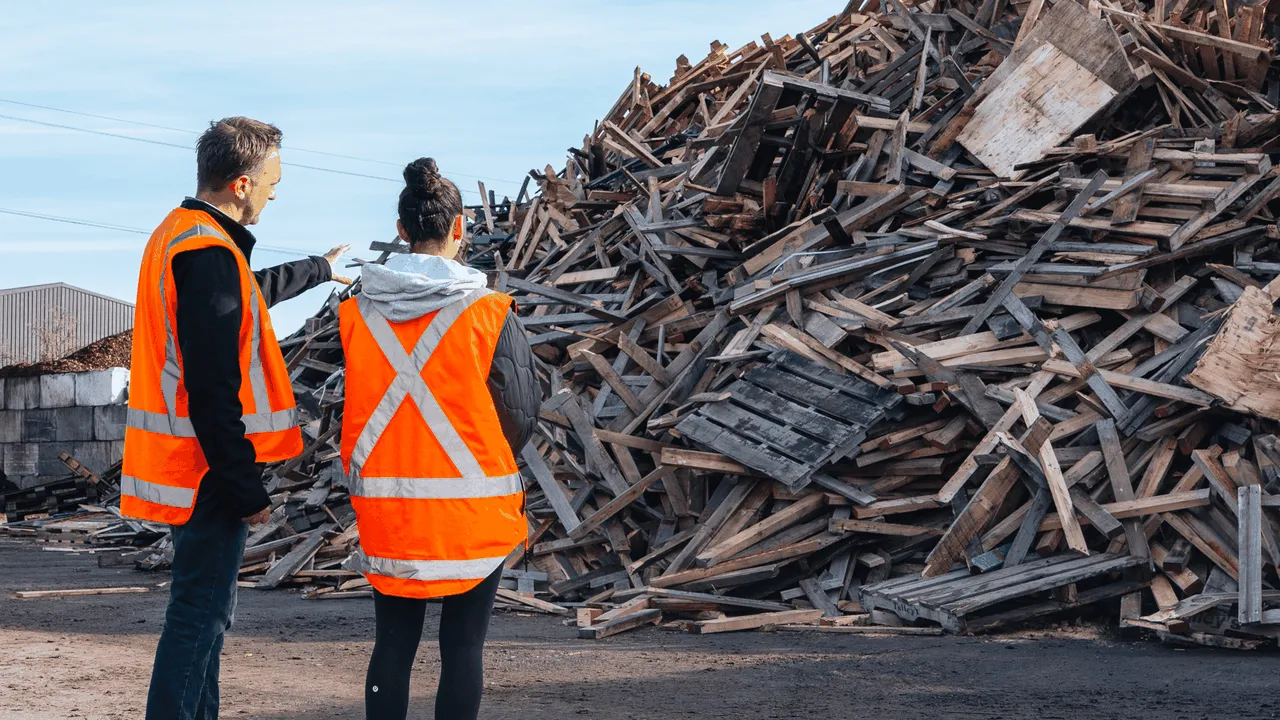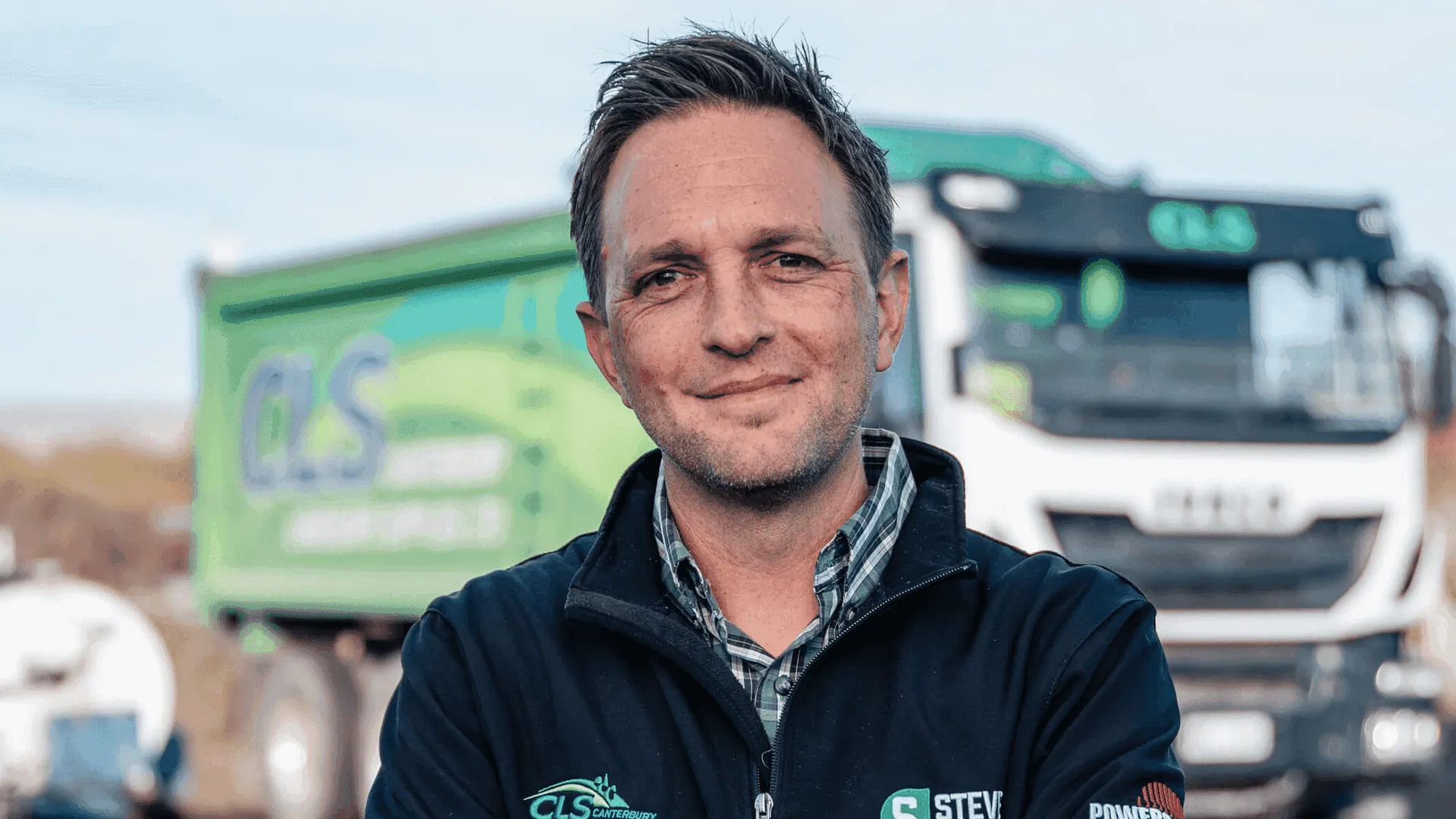Business
15 July 2025
Canterbury Landscape Supplies
Finding solutions to one of New Zealand, and the world’s great climate challenges

Clean tech
From wood pallets to gold dust: a sustainability masterclass

Behind the bags of potting mix and mulch, local business Canterbury Landscape Supplies (CLS) is finding solutions to one of New Zealand's and the world’s great climate challenges – keeping up with the amount of waste sent to landfill every day.
Finding a beneficial reuse market
Built on strong foundations of long-term partnerships, with a zest for innovation and a healthy dose of ‘challenge accepted,’ there is much more to CLS than meets the sawdust.
For many people, waste is simply what gets tossed in the red bin and whisked away to landfill every fortnight. But for commercial industries and large organisations, waste sent to landfill each week is significant, impacting the planet and their bottom line.
CLS largely services sawmills, farms and construction businesses, taking their waste heading to landfill, and repurposing it into something good.
General Manager Phil Wylie explains, “It's not difficult to take a product and remove it from landfill, that's not the difficult part in recycling. The difficult part is what you do with it next.”
This is called the beneficial reuse market. It’s the idea of taking a waste product and adding value to it, so it can provide benefit for somebody else. In other words, regeneration.
Sustainable solutions
From turning bark into potting mix, broken wood pallets into wood chips and farm waste into organic compost, it is clear that sustainable solutions are the name of the CLS game.
“About ten years ago, we got asked to take some wooden pallets from a company. We had never processed wood before, and it took us a long time to figure it out, but now we take pallet waste from everybody in Christchurch, including Chep Pellets, who are probably the largest manufacturer of wooden pallets in the world,” Phil explains.
“We are members of the bioenergy association, and our biggest market is the biofuel market. This woodchip we make goes into boiler fuel, used by large organisations who are trying to transition away from fossil fuels. And our customers who use our biofuel love it, because wood pallets are very dry. The lower the moisture level, the more energy you get out of that fuel. So effectively, you can burn less and get more heat. It's very economical.”Phil Wylie - Canterbury Landscape Supplies General Manager
The benefits of organic product
The business now has a second site in Swannanoa, which takes approximately 20,000 tons of different organic waste streams every year.
“We have a forced aeration combo system up there and effectively we blend waste material with recycled green waste and turn it all into compost. Then we make different products out of the compost, and it goes everywhere across the rural market, so farms, vineyards and landscape yards.”
Sentiment change in the farming sector
Phil says it has been interesting to see sentiment change for use of these organic products, especially in the farming sector.
“We don’t think compost is the answer for everything, but we do think there's a strong argument for farms to use a combination of organics alongside some synthetic fertiliser. They can work well in balance with each other, and for farmers, it will lower fertiliser usage.
“And more importantly for us, we can improve their soil health long term. Using urea or super-phosphate will see grass grow very quickly, but you’ll also see things happening like nitrogen leaching. Whereas organic matter acts like a sponge and it can prevent that from getting through the soil profile into the water.
“Our rural customers who have been using our compost for a few years tell us they are using half the water, keeping their grass greener than they used to. It's because adding organic material back into your soil creates long-term benefits. You’re looking after your soil, not just trying to grow grass.”
Strength in long-term partnerships
CLS is having a major impact in New Zealand’s regenerative landscape. And if their long-term partnerships say anything, it’s that people love to work with this team.
The business has been servicing the same sawmills for over 30 years. They have another 25 years working with Oderings Garden Centres and a decade under their belt with Winstone Wallboards.
“We are big believers in these long-term relationships that are positive for both parties. We're open to working with almost anybody, as long as we’re fair and reasonable with each other.”
For businesses dealing with the constant headache of waste and the cost that comes with it, CLS is an incredibly valued partner.
Wanting to start a sustainable business?
His advice for others looking to start a sustainable journey is to stay curious and take your time.
“We didn't know these things all at once. For others, I would say start slowly and measure the effects. Make sure you gain confidence with what you're doing and how you're doing it before you progress to the next level, and you’ll build momentum. That's what we found. We started focusing on one opportunity, and that opportunity bred opportunity. We found momentum, and the snowball down the hill became larger and larger and larger.”
Don't miss a thing
Sign up to our newsletter to get valuable updates and news straight to your inbox.


)
)
)